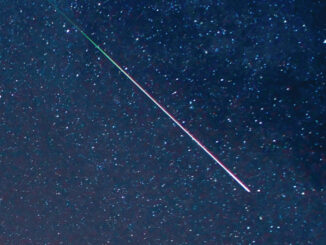
Perseids



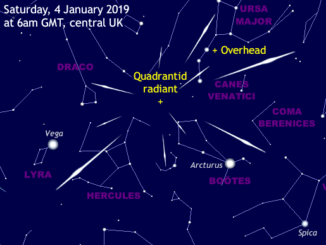
Don’t miss the Quadrantid meteor shower peak at UK dawn on 4 January 2020
For an early astronomical treat to usher in the New Year, seek out the natural pyrotechnics of the rich Quadrantid meteor shower. Peak shooting star activity occurs within a four-hour window centred on a prediction of 8am GMT on 4 January 2020 – a time that favours UK skywatchers at astronomical dawn, or North American observers around local midnight.
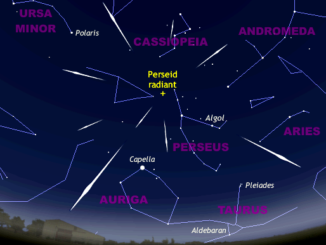
A fine Perseid meteor shower peak on 13 August despite a waxing Moon?
It’s the time of year when Northern Hemisphere skywatchers turn their attention to the Perseids, the favourite meteor shower of many an observer. The peak of the Perseids is predicted for moonset on 13 August 2019, bringing dark skies to watch these bright, fast shooting stars — the more explosive examples leaving persistent trails in the sky.
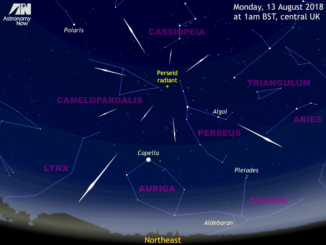
Don’t miss 2018’s favourable Perseid meteor shower, 12–13 August
From the UK evening of Sunday, 12 August into the early hours of the following morning it’s the maximum of the annual Perseid meteor shower. This year, a new Moon setting in twilight makes prospects for watching this natural firework display particularly good. So, find somewhere away from the streetlights, settle into a garden lounger facing northeast and enjoy the show!
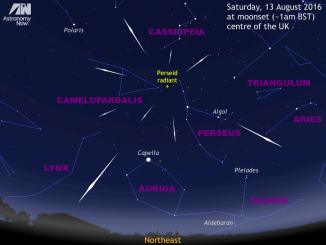
Get ready for the Perseid meteor shower peak of 11-12 August
With a waxing gibbous Moon setting at 1am BST for the UK on the night of 12-13 August, observers will have dark skies for what could be a Perseid meteor shower to remember. Some theorists believe that Jupiter’s gravitational influence has deflected more particles from parent comet 109P/Swift-Tuttle into Earth’s path for a spectacular show.
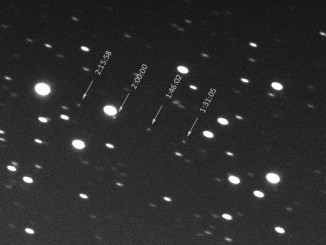
Astronomers recall discovery of Phaethon — source of Geminid meteors
The beautiful Geminid meteor shower is due to light up the heavens this weekend, but the source of the enigmatic cosmic display had eluded stargazers for more than 120 years. Then, in 1983, two University of Leicester astronomers — Dr. Simon Green and Dr. John Davies — used data from the IRAS satellite to discover 3200 Phaethon, an asteroid with a very unusual orbit.
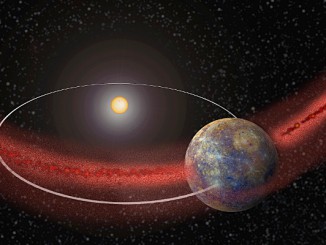
Mercury receives a meteoroid shower from Comet Encke
The planet Mercury is being pelted regularly by bits of dust from an ancient comet, a new study has concluded. Comet Encke has the shortest period of any comet, returning to perihelion every 3.3 years. The dust from the comet affects Mercury’s tenuous atmosphere and may lead to a new understanding on how these airless bodies maintain their ethereal envelopes.
